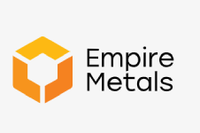Nevsun Resources has made headlines twice this week. Once for a new discovery southwest of its Bisha mine, and once for fresh allegations of the use of forced labor, this time from the United Nations. While the human rights allegations are worrying, the market still reacted positively to the company’s latest discovery
According to Mining Weekly, the UN Office of the High Commissioner for Human Rights commissioned a report on Nevsun after a lawsuit was filed against the company last November. Three former workers at Bisha filed a civil claim against Nevsun on November 20, 2014, stating that they were “subjected to cruel, inhuman and degrading treatment as well as harsh working conditions including long hours, malnutrition and forced confinement for little pay.”
Nevsun denied those claims, with Nevsun CEO Cliff Davis stating at the time that the company has “adhered at all times to international standards of governance, workplace conditions, and health and safety.”
Forced labour allegations
More recently, the UN has accused the government of Eritrea of systemic, widespread and gross human rights violations. “Citing an array of human rights violations on a scope and scale seldom witnessed elsewhere, the report by the UN Commission of Inquiry on Human Rights in Eritrea describes a totalitarian state bent on controlling Eritreans through a vast security apparatus that has penetrated all levels of society,” states a press release on the report, which warns countries against sending refugees back to Eritrea.
Nevsun, which owns the Bisha mine in a 60-40 partnership with the government, as per Eritrean law, is also mentioned in the report, as the commission “collected evidence that forced labour occurred in the context of the development and exploitation of the Bisha mine.”
For its part, Nevsun has denied such claims, with Davis calling them “sensational and unbelievable,” and stating that the allegations were made without visiting the mine or the country, despite efforts by Nevsun to engage with the commission. “This brings into serious question the methodology, process and collation of information in their report,” he said.
New greenfield discovery
Nevsun came out with positive news on Thursday, however, announcing yet another discovery near the Bisha mine. The company has found a new massive sulfide discovery at its grassroots Asheli prospect on the Mogoraib River exploration license, which lies 20 kilometers southwest of the mine.
Highlighted intercepts from the discovery include 2.29 percent copper, 4.5 percent zinc, 0.45 g/t gold and 37 g/t silver over 22.9 meters, as well as 1.26 percent copper, 6.08 percent zinc, 0.28 g/t gold and 26 g/t silver over 20.9 meters.
“Our new greenfield discovery at Asheli is exciting in that it shows that the mineralizing systems on the Asheli trend are capable of producing high grade deposits with good thicknesses of massive sulphide,” said Davis in Tuesday’s release. “With over 4 kilometers of untested strike length with similar geology the potential for further discoveries on this trend looks very promising.”
Stefan Ioannou of Haywood Securities said in a note to clients that he is pleased with the results. “Drilling to date has only tested ~1 km of the Asheli Trend and mineralization remains open in multiple directions,” the note reads. “Hence, we view the remaining ~4 km of untested trend as highly prospective.”
Ioannou also notes that assay results are pending from an additional 15 holes drilled at Asheli, and that the company is planning to continue work in the area later in 2015. Overall, Ioannou is retaining his “buy” rating for Nevsun with a price target of $5.50 per share.
Certainly, those human rights allegations are worrying, but the market still reacted positively to Nevsun’s latest discovery. At close of day Thursday, Nevsun’s share price was up just under 6 percent, at $4.85. The company’s share price has experienced a bit of a dip over the past week or so, but is still up about 8 percent year-to-date.
Securities Disclosure: I, Teresa Matich, hold no direct investment interest in any company mentioned in this article.
Related reading:
Nevsun Resources Accused of Using ‘Slave Labor’ at Eritrea Mine





